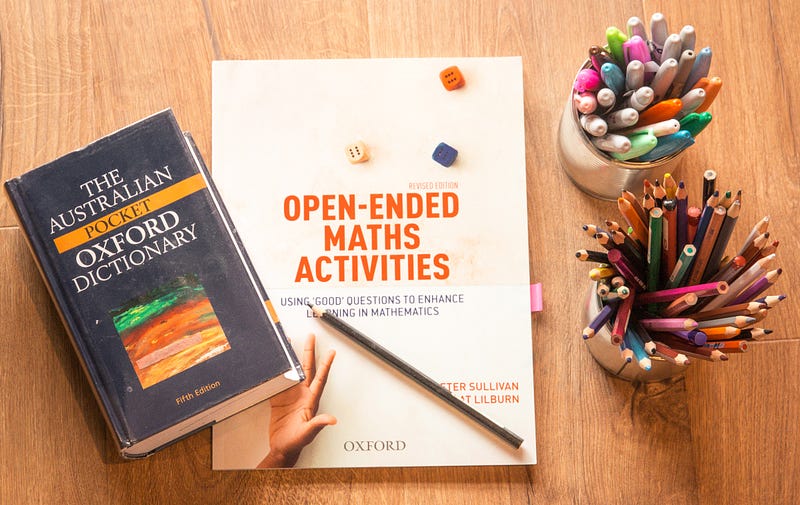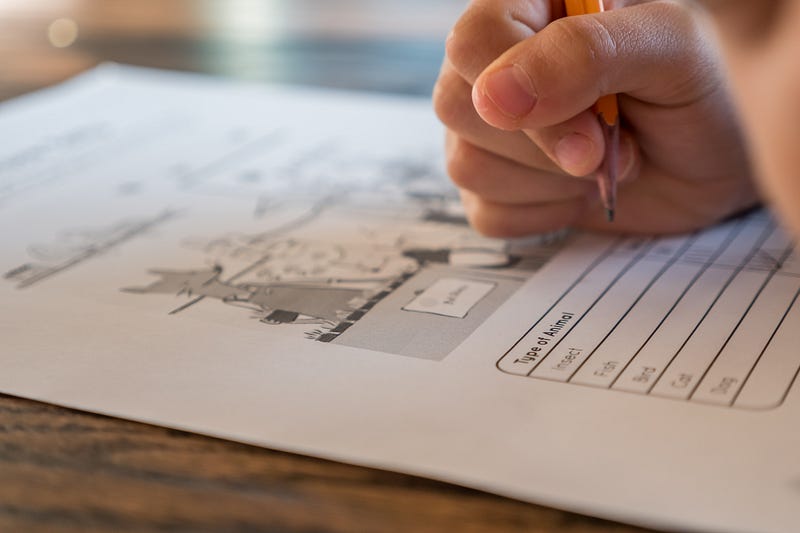Having good grades isn’t necessarily a precursor for success in life. However, for certain careers, having good grades can certainly open up a lot of doors.
For example, if you have good grades in college, you have a higher chance of being accepted into a medical school (given that your chosen career is a doctor) or, it can also be something to highlight on your resume. You can state “Honour’s Roll 2021–2025” under the education section.
I graduated from university in 2021 and had mostly straight As. Today, I’ll share some of the secret strategies I used to get good grades in college. These tips can’t be found anywhere else on the internet so pay attention!
Read: How to make money self-publishing on KDP for free
Table of Contents
1. Sit on the first row

Most of the best-performing students sit in the first row. Being in the inner circle of the best students in the class can help you get better grades. Students in the back can’t see the blackboard or screen as well, and people often talk more at the back making you lose focus.
You’ll also be more easily remembered if you sit in the first row. Having the professor recognize you can be beneficial to you.
Read: how to make money with a podcast.
2. Connect with classmates on the first few days of class

The first few days of class in college are crucial. Most students stop going to class after the first 1–3 weeks. You’ll see the class size drastically reduce in size as the weeks pass. Many of these students would watch the lecture online if there’s an option to. Even if there isn’t an option to watch the lecture online, many students would still opt not to go. Colleges don’t take attendance so it makes going to class a lot more of a personal choice.
You really only have the first few weeks to connect with your peers. It’s important to connect with your peers so you have someone to ask questions when you need to. Sometimes you just can’t bring yourself to ask certain questions in front of the instructor. I mean, what if they talked about it in class already and you somehow missed it?
Many of these peers would also know the group chats to join (or someone will create a group chat if no one has created one). You’ll want to be added to the course group chat on Facebook or Discord so when a deadline is coming up and everyone is talking about it, you’ll be reminded of it. Many students would also send past exams as well as free PDFs of textbooks in the group chat.
Group chats can help you stay on top of things in class and give you an extra source to ask questions if you have one.
Read: Make money with 12 easy Fiverr gigs
3. Don’t worry about writing down everything during class

It can be daunting when everyone is frantically writing things down or typing things up during class and you’re struggling to keep up the pace.
Chances are, you won’t be able to write down everything in class. No one would be able to. If they’re able to write down everything in class, they haven’t had the time to properly process what the teacher said. The best thing you can do is to just listen in class. Listen to what the teacher is saying and note down things you don’t understand. You may not have time to note down the entire question so just write a few words to remind yourself.
For example, If you are wondering how long ago did Neanderthals arrive in Europe and Asia, you won’t have time to write down the entire question so you can write down the keywords “When Nean → Eu & Asia?”. This will ensure that you have time to listen to what the teacher is saying.
Now, this may not work well if your instructor doesn’t give you any slides or the slide isn’t comprehensive at all. For most instructors out there, their slides cover 90% of the things you need to know so all you need to do in class is to focus on listening and making sure that you understand everything the teacher is talking about. The other remaining 10% could be in the lecture or the textbook.
If your instructor doesn’t give any slides, you may have no chance but to take notes. This is when the next point will be important.
Ps: some instructors won’t allow students to take pictures of the slides they are covering and won’t give you the slides (I know) so you’ll have to make sure you write down everything on the slides and then use it to get an idea of what you don’t understand.
Make money writing on Medium. Read here.
4. Develop your own shorthand writing style that works
Shorthand’s writing style can look different to different people. There are some words that are common and often reoccur many times across different subjects so you can develop a writing system that suits your need. For example, these were some of my shorthand writing systems when I was in school.

Take a look at the following:

This is what I would write down if the professor said, “Between the year 2001 to 2004, maybe 2003 ish, mid-2003, I would say (they often like to change their words as they go on)… the workers in the Unicorn industry were making $6 to $8 an hour, so essentially, they were making maybe I’d say $960/week. Don’t quote me on that, do your own math. Second-level Unicorn workers were making maybe $10+ an hour. It takes about 2 years to get to the second level. Third-level takes 5 years to get to from second-level and they make roughly $21 at least an hour. However, there’s a way to drop a level and that is if you have a drop in 10% or more in output…”
You’ll have to find a way to decrease the number of words you have to write to keep pace with the lecture. It may mean writing things in a way that only you can read.
Read: How to make a font to sell for money
5. The right way to preview material

Ideally, you’ll preview the course material before every class. You’ll read the assigned reading for that specific class that week, you’ll take notes, and you’ll even do the practice questions.
However, most of you won’t have time to preview the material in as much depth as you want to.
The right way to preview school material is to take out your textbook and look at the headlines and subtitles of the entire chapter. You’ll get an understanding of what’s it’s about. You’ll pay special attention to the parts you don’t understand in class.
Take the time to read over parts that interests you. Go over sections that spark any bit of interest in you.
If you don’t have time to read the entire chapter, read the first sentence of every paragraph in the chapter. This will be enough preview for the most part.
Read: How to start a slime shop and make money this week
6. Review class on the day that it’s taught

You forget 50% of the class about an hour after the class has been taught. You forget 70% of the material taught in class after about 24 hours and within a week, about 90% of the material would have been forgotten.
Reviewing a class on the day that it’s taught is crucial. It helps you retain information that you would otherwise forget.
You should also write down anything that you could remember but didn’t have time to note down in class.
Read: How to make money streaming on Twitch
7. Teach it to yourself or others

One way to know if you truly understand the material is to teach it to yourself or others. If you can teach it to others or yourself, it means you understand the material.
Teaching it to yourself would also help consolidate ideas and knowledge further so you gain an even better understanding of it.
When reviewing for a course, teach it to yourself.
Read: 50 Ways to make extra money
8. Slides over textbook

Textbooks can be boring. Give me my chemistry textbook and I promise you I’ll start dosing off in about 5 minutes to 10 minutes. No kidding.
Textbooks can also be helpful in explaining difficult concepts but the majority of the time they make things more difficult to understand. Some people are very smart and reading from a textbook is an easy feat for them but I know most of you don’t find textbooks particularly fun.
When you’re a college student, you don’t have time to read 5 chapters across 5 courses each week and take notes for each.
Many students spend hours trying to read an unreadable textbook. These textbooks are full of fluffs. You can essentially cram everything you need to know on a few pages but writers make it much longer than they should to justify the high price you’ll have to pay to obtain one. They adjust the order of the chapters, change out a few pictures, switch out a few paragraphs every year to keep students from buying older editions for cheaper. Textbooks are a waste of money and frankly, they can be a waste of time as well.
Most professors provide slides and if your professor is like most other professors, they cover 90% — 100% of the stuff you need to know on the slides. Unless the professor specifically talks about something in a textbook, you really don’t need to read the textbook.
Look at the following definition of addition:

An easier and much more straightforward way to explain addition is to say “Addition is the total of two numbers. For instance, the addition of 1 plus1 equals 2”. This is not how most textbooks put it.
PS. I don’t hate textbooks. I’m not against textbooks or against those who read textbooks for fun or to learn things (it can be a great way to learn things not taught anywhere else on the internet) but I am against poor studying habits that are counterproductive. As a college student, slides ARE in most cases, a better way to learn than reading from textbooks.
Read: How many articles do you need to blog full-time?
9. Study sleep method

When you’re sleeping, your brain takes short-term memory (stored in the cortex) that turn it into long-term memory (stored in the hippocampus). This process only occurs when you’re sleeping.
If you only got 3 days before the exam to study and you’re starting from ground zero, the best thing you can do is to read over the material, teach it to yourself, ask any questions you have in the group chat or in the office hours, nap/sleep, wake up and repeat.
I always make sure I have 4–6 times study-sleep sessions before an exam. This is one of the easiest ways to ensure a good grade. (This only works if the exam is mostly memorization-based, if it’s calculations, you have to learn and practice from the beginning).
Read: The 7 most profitable blogging niches
10. Go to office hours

Office hours are a time to bond with professors and other peers. Professors allow office hours where you get to ask questions outside class time.
Read: Want to be your own boss? 11 Reasons to start a blog
11. EQ over IQ

Some people think IQ is everything. It’s not. Standardized IQ tests also aren’t accurate and only test specific types of intelligence while neglecting all others.
What’s more important is EQ aka emotional intelligence. It’s always EQ over IQ. You can be the most “intelligent” person in the room who scored the highest on the IQ test but if you can’t prevent yourself from screaming at someone when they did something annoying, no one will want to associate with you.
Companies don’t hire the person with the highest IQ, instead, they hire the person who they feel has the skills and can get along with. The latter is more important.
Emotional intelligence is your ability to understand and handle emotions. It pertains to your ability to understand how others feel, how you feel, how to communicate your feelings, how to emphasize with others, how to dissolve tensions, etc.
In a classroom setting, this could mean knowing how to get along with your peers, knowing how to talk to the professor so they feel respected and relaxed (some professors are a bit uptight), knowing how to handle exam stress, etc.
The good news is that EQ can be improved with time. If you aren’t particularly great at handling emotions, you can learn how to.
Read: How to improve Emotional Intelligence with these 10 Unique Methods
Read: 16 Things to sell to make money as a teenager today
12. Study with classmates

Studying with classmates can be fun and it makes studying less boring. However, you should stay on top of what you need to study for instead of getting off-track.
Read: 15 Burnout symptoms to look out for: A Must Check.
13. Answer questions in class

Answering the questions you know in class can prevent teachers from calling on you to answer a question you don’t know the answers to.
Read: Secret guide on how to stop being a perfectionist
14. Do as much practice as you can

There’s a saying practice makes perfect. No, you won’t do it perfectly but you can certainly increase your grades with more practice. This is especially true with math questions.
Read: 12 Things to never buy as a college student
15. Make condensed notes of things you should know

Take out a piece of paper and write down everything you know about what would be on the exam. As you’re writing things down, you’ll realize that you forgot certain things and you aren’t too familiar with certain concepts.
The more condensed your notes get, the more you understand the concepts.
Read: Should you rent or buy a home? A simple formula
16. Use imagery to help you memorize

When you’re trying to remember certain difficult concepts you can use imagery to help you.
For instance, if you’re trying to remember the following elements in order H, Li, Na, K, Rb, Cs, Fr. Off the top of my head, I’m thinking of the sentence “How Likely is Nancy Knitting a Ribcase for her Computer Science class in France right now?”
The weirder the image it conjured up, the easier it will be more you to remember. Of course, what you choose to reference is based on what you have experienced. Cs is short-term for computer science for those who don’t know, it may be difficult for you to remember if you don’t know that already. Use your own experience to your advantage in conjuring up the weirdest images.
Read: Are doctors rich? The true cost of becoming a doctor
17. Sleep on time every night

Sleeping on time every night can help your brain recharge and for you to feel energized the next day.
Read: 17 Surprising frugal tips
18. Plan out your day or week and then go with the flow

You want to plan out your day and week to ensure you’re spending your time wisely but don’t go overboard with it. Simply knowing what you’ll study from 3 pm to 5 pm on Friday can help you determine whether you have time to meet up with a friend for an hour.
Plan out your days and weeks and then go with the flow.
Read: How to become a content creator and make money
19. Don’t speak ill of the class or teacher

Talking ill of your teacher or class will make you see the class even less favorably and make you even less willing to study. It’s all about the psychological impact of your own words on yourself. Some things are better left unsaid even if you do think about it. Talking it out makes it more real.
Read: 20 Advice for Entrepreneurs
20. Be confident

Confident students tend to do well in school. Even if you aren’t confident, act like it and you’ll feel more confident.
When grading your paper, if your name can be recognized by the grader, it’ll also subconsciously impact their perceived value of your short answers. A confident student is more likely to look like they know what they’re talking about.
Read: How much do YouTubers make? You can do it too
21. Understand that some things aren’t in your control

Despite all your efforts, some things just aren’t in your control. Your professor may have a bad day and they grade your essay lower than it could’ve been.
You can do everything in your power to get the best grade you can get but maybe your professor decides to add something surprising in the exam and you didn’t do well.
Read: 12 Most profitable YouTube Niches
22. Do some light physical exercise

Exercise can be good for your brain. Even a simple walk in the woods can help. Bring someone with you if you’re going to lonely places for safety reasons.
Read: How to pick the best domain name for your blog
23. Take things slow

I know for a lot of students, they have so much on their plates that it’s hard to slow down. Slowing down can help prevent burnout and help you feel more in control.
Read: 8 Reasons you should be your own boss
24. Don’t post any picture of yourself on social media

This is an odd piece of advice. Hear me out. When you post pictures of yourself on social media, it’s hard to put your phone away as you may become distracted by what all those notifications may be saying about you. You don’t have the time in the world to check all those notifications every 5 minutes.
Read: 7 Must-know lessons from Rich Dad Poor Dad
25. Don’t date while you’re still in school

I know some of you won’t like this piece of advice but dating in school can impact your grades negatively when the relationship goes sour.
You’ll have time to date and find a good partner after school ended if your goal is to get good grades.
Read: 3 People who got rich with 3 types of cryptocurrency
26. Stay away from drama

Either that’s drama in school or on social media. Stay away from all drama. Who cares who kissed who and who said what. You’ll mental health is more important.
Read: Are you an entrepreneur? You may be mentally ill
27. Take some time to do nothing each day

Don’t forget to take a break and I meant truly take a break. Your idea of a break could be to watch Netflix or get drunk. That’s that really a break. A true break is a break from overloading your brain with information and scenery.
Lie on your bed or sofa and stare at the ceiling. Let whatever thoughts come without judgments.
Read: 10 Easy ways to drive traffic to your blog
28. Don’t compare yourself with anyone else

Students like to compare grades with each other. Don’t. This will give you a lot more stress than it needs to. Compete with yourself. You can tell your friends to not tell you their grades because you don’t want to compare. Tell them that you’re competing with yourself.
Some people have a natural skill in labs and that’s something you may not be able to compete with despite all your preparations. While you, you may have a natural skill in writing that will give you an edge when writing an essay.
After school is over, you’ll realize just how much things you used to care about have no more value. The things you use to compare with are now frivolous. Look at the bigger picture. Live life at your own pace. It’s not you against anybody else, it’s you against you.
Read: Can you make money blogging about anything?
Something to consider…

I know for a lot of you, getting consistently good grades can make or break your career and you work really hard to get good grades and maintain your grades. You may be stressed out constantly. It’s… no fun.
Here’s something I want you to consider…
“Some people are good at studying, some people are good at life”
What does that mean? Well, it means good grades don’t always equate to success in life. A person who isn’t good at studying can still be successful in life. In fact, many good students end up being an employee of a company that’s founded by a person who dropped out or did poorly in school.
You can win at school by obtaining good grades but there are so much more to grades in life: you need to be good at interpersonal skills, communication skills, and networking skills if you want to succeed in any career.
You can also become a content creator, start a business, become filthy rich all without having any good grades or obtaining any degrees.
Most of us are only given so many choices in life. We think a 9–5 is a must and that there’s no other way out but there are other paths to take that don’t involve school, getting good grades, or climbing the corporate ladder. I want you to consider the possibility aside from a traditional career. This must be your choice to make. I’m only here to tell you that there are other paths in life.
One of those other paths is to become a content creator. Here’s a full guide on how to become a content creator and make a full-time income on the internet.
Final thoughts
If you want to succeed in life, getting good grades won’t be enough. It’s not nearly enough. Heck, getting good grades doesn’t even promise success in life.
While you should strive to get good grades in school, you should also consider the possibility of deviating from the traditional career path that doesn’t require you to maintain straight As.
Nevertheless, if the career you have chosen IS truly the career you want and not some path pushed onto you by the school, your parents, or society, then, by all means, work hard to get there. It may mean getting good grades so you can get your foot in the door.
Good luck!
Read: How to become a content creator and make money this year



